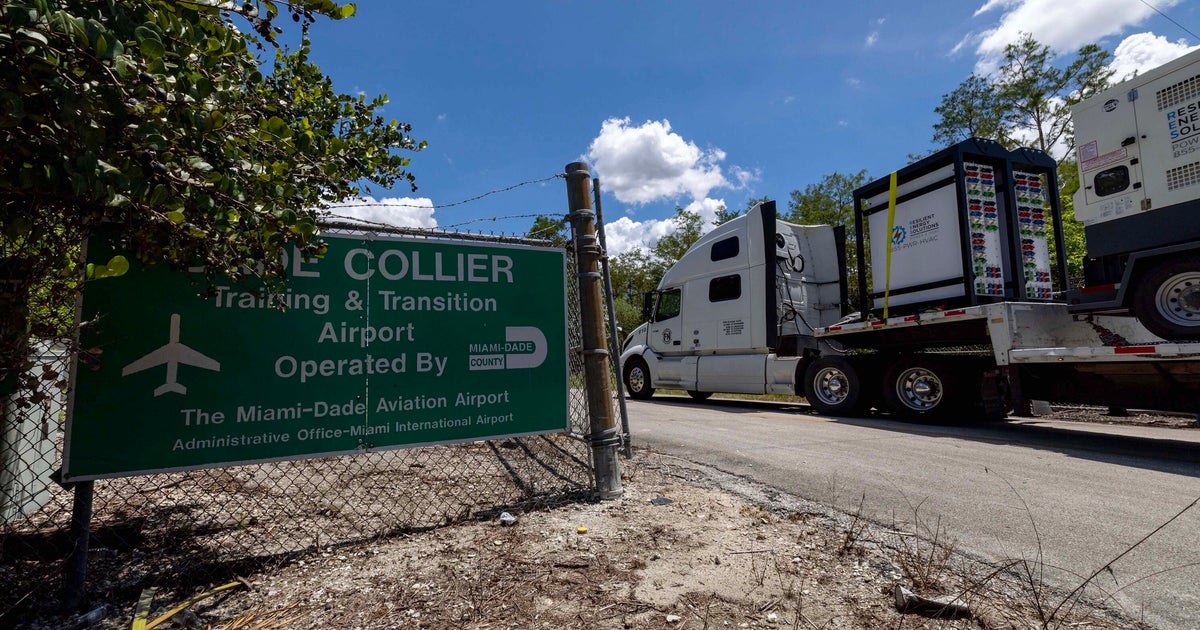‘A Human Rights Disaster Waiting To Happen’: ‘Alligator Alcatraz’ Is Ripe For Abuse, Experts Warn

President Donald Trump is set to visit a Florida immigrant detention facility on Tuesday that Republicans have dubbed “Alligator Alcatraz,” a site legal experts describe as ripe for abuse.
The temporary facility is located in a remote part of the Florida Everglades and is expected to hold as many as 5,000 beds. It’s helmed by the Florida state government, backed by the Department of Homeland Security, and has been rapidly constructed in recent weeks. State and federal officials have touted the location, citing the alligators and snakes that could serve as security for the detainees inside.
Advertisement
Immigrant detention sites have long faced scrutiny for abysmal living conditions and civil rights violations, and multiple aspects of this facility suggest it’s primed to have the same problems, immigration law and policy experts tell HuffPost. DHS and the Florida Governor’s Office did not immediately respond to a request for comment.
“This facility is a human rights disaster waiting to happen,” Caitlin Patler, a University of California, Berkeley, public policy professor, told HuffPost, citing factors like its remote location, which will make it tougher for immigrants to reach legal counsel.
The size of the facility, which is set to be one of the largest in the country, raises serious questions about whether there will be sufficient resources available including food, water and medical care, experts note.
Advertisement
“Medical concerns at these large detention centers are serious. Negligent deaths within immigrant detention centers have been documented over the years and there is often limited access to medical personnel and treatment needed for even common illnesses, injuries, or conditions,” says Lindsay Harris, a law professor at the University of San Francisco.
Another key issue is that this site is temporary and composed of tents and trailers, rather than standard buildings. That feature, alone, suggests it’s less equipped to provide suitable shelter for the detainees given the intense heat and humidity that’s common to the region.
“This is a tent facility, so it’s a temporary one, and those even more so than the brick and mortar facilities raise questions about just the basic necessities of life,” says Kathleen Bush-Joseph, a policy analyst at the Migration Policy Institute.
Advertisement
The location, which is dozens of miles away from the closest city, also means it will be tough for attorneys to reach their clients and limit external oversight of the facility.
“The location of the detention center makes it hard to believe that standard protocol and monitoring to safeguard rights and humane treatment of detained persons will be observed,” said Harris.

Comments are closed.